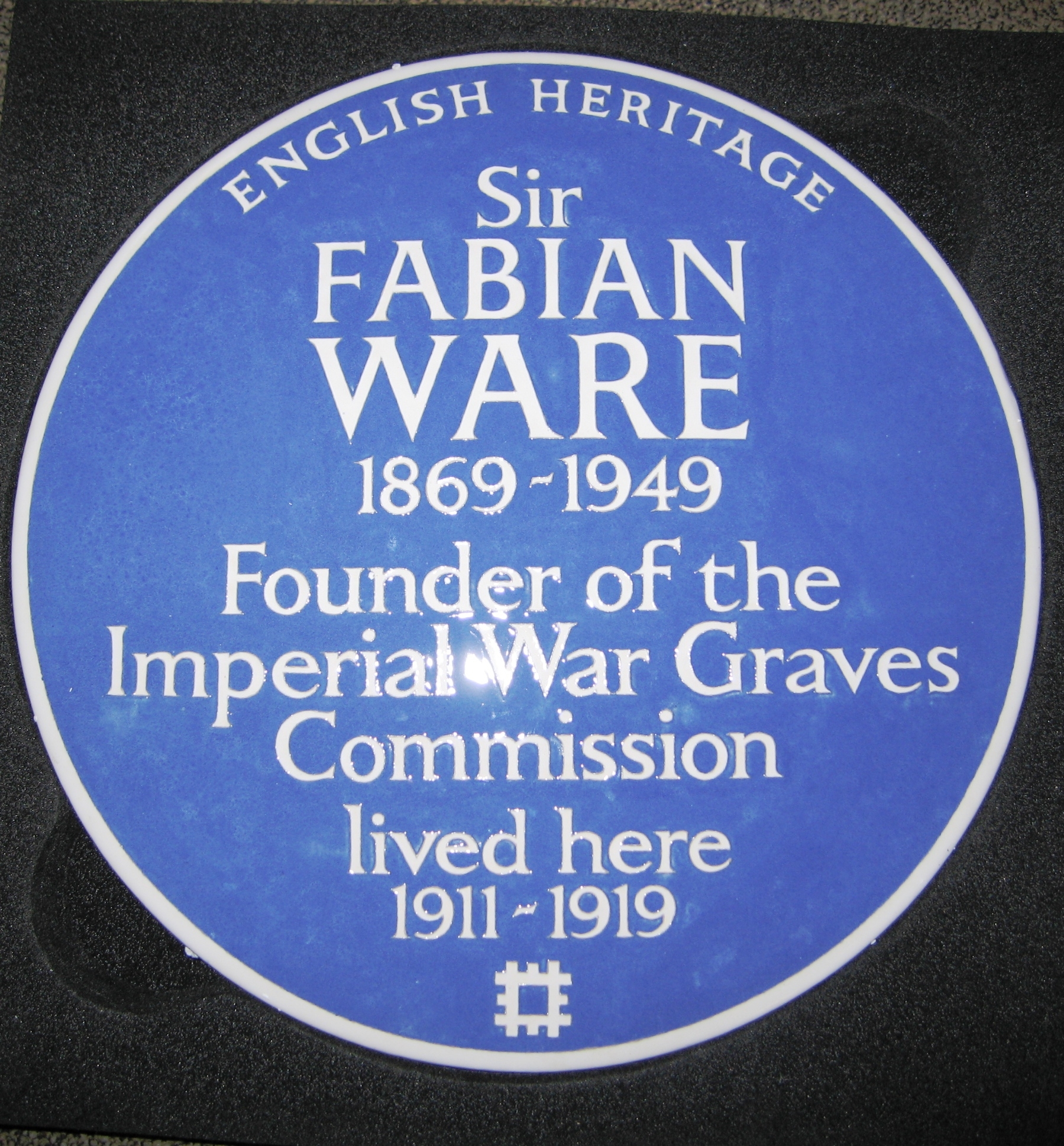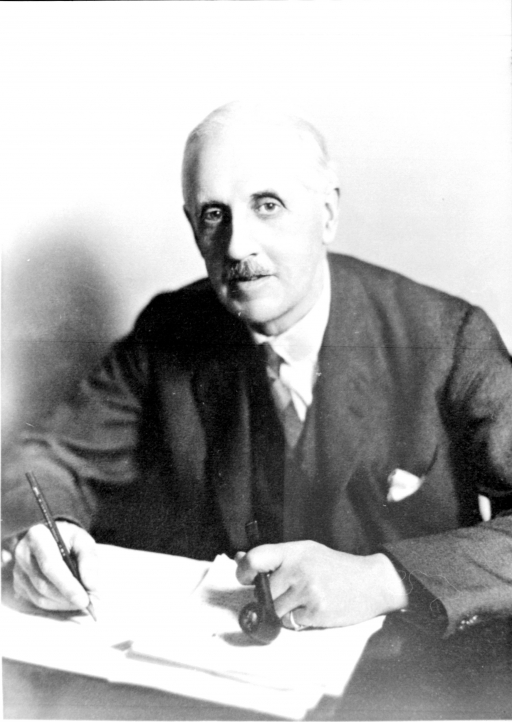Sir Fabian Ware, the man who ensured fallen First World War soldiers were remembered with a dignified final resting place, has been honoured today (September 25th 2014) with the unveiling of an English Heritage blue plaque at his former London home.
The ceremony was carried out by his granddaughter, Gillian Ware, at 14 Wyndham Place in Marylebone. Sir Fabian, founder of the Imperial War Graves Commission, lived in the early 19th century terraced house between 1911 and 1919.
Aged 45 when the First World War broke out, Ware was too old to fight. But he volunteered for service in France with the British Red Cross, commanding a ‘flying unit’ of ambulance support drivers and vehicles.
Struck by the volume of casualties and the lack of any plan to mark their final resting places, he began recording the graves of soldiers killed in battle.
In 1915, his work was recognised by the War Office. Ware’s unit was brought under the command of the British Army, and given official responsibility for finding, marking and registering British graves in France.
Fabian Ware received a knighthood for his work after the war and led the Imperial War Graves Commission, created in 1917, in the task of reburying the war dead in permanent cemeteries across France.
During the Second World War he was appointed Director of Graves Registration and Enquiries at the War Office and extended the scheme to honour civilians killed by conflict.
Ware saw his creation as having “extraordinary moral value to the troops in the field as well as to the relatives and friends of the dead at home”, seeking equal treatment for all the war dead, regardless of rank.

Professor Ronald Hutton, Chairman of the English Heritage Blue Plaque Panel, said Fabian Ware’s vision had created a lasting legacy to the sacrifice of the fallen: “As the driving force behind the Commonwealth War Graves Commission he shaped the way we honour and remember those who died during the First and Second World Wars.”
The Imperial War Graves Commission changed its name to the Commonwealth War Graves Commission (CWGC) in 1960. Today, the CWGC ensures that the 1.7 million people who died in the two world wars will never be forgotten.
It continues Sir Fabian Ware’s vision by caring for cemeteries and memorials at 23,000 locations across 153 countries.
Air Chief Marshal Sir Joe French, Vice Chairman of the CWGC, said: “As the Commonwealth War Graves Commission approaches its centenary, Sir Fabian Ware’s legacy can be seen through the warmly received events CWGC has this year hosted in Normandy and Mons.
“These landmark anniversaries of both world wars were marked in immaculately maintained cemeteries, providing fitting tributes to the fallen.”
Blue plaques, marking the addresses of notable people, have been a feature of London’s streets for almost 150 years.
Information & images supplied by English Heritage
Posted by: Peter Alhadeff, Centenary News
